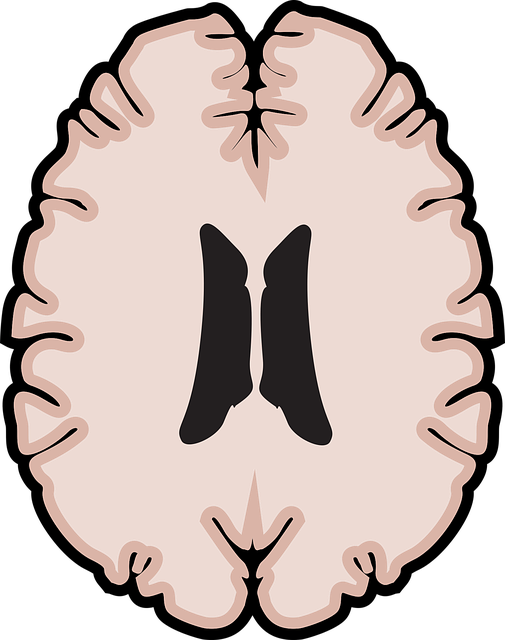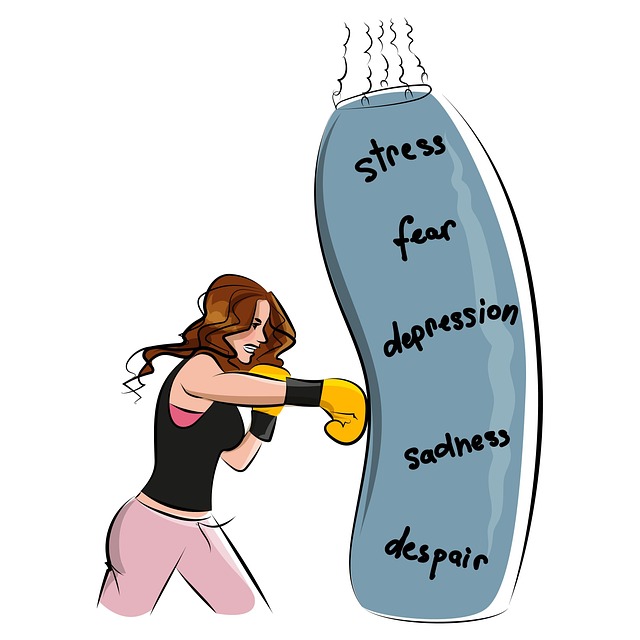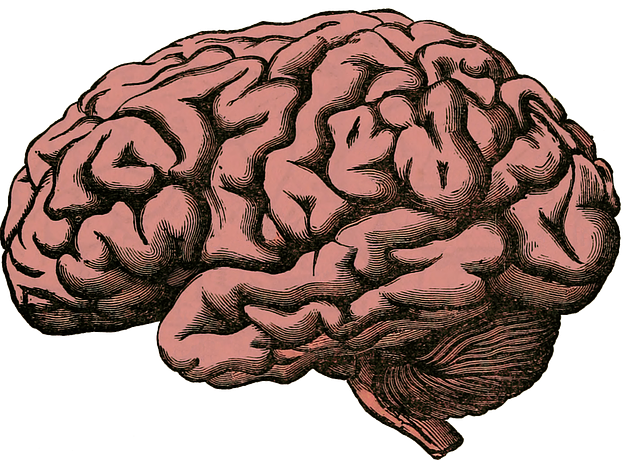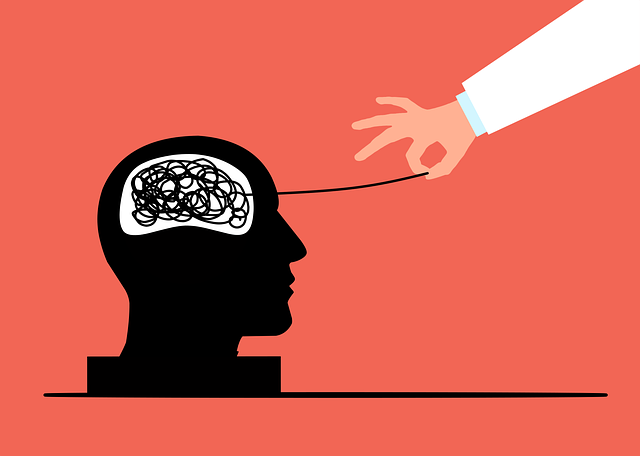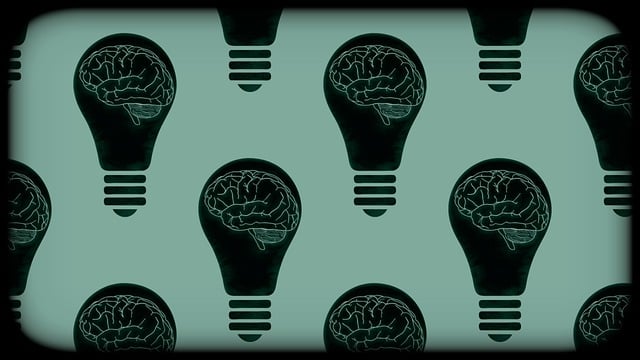Mental health advocacy is a powerful driver for positive change, especially within communities focusing on vulnerable groups like children. By fostering open dialogues, educating the public, and promoting understanding, we can dispel stigma around mental health issues. Initiatives such as Golden Children Therapy, stress management workshops, and mental wellness podcast series create supportive communities, encouraging open communication about mental health experiences. Golden Children Therapy, in particular, revolutionizes early intervention for young individuals by addressing emotional well-being and empowering them with tools to navigate challenges. Through a multifaceted approach, including accessible resources and collaborations, these initiatives break down stigma and promote proactive mental health management, ultimately enhancing community wellness. Measuring success through robust evaluation methods ensures the effectiveness of programs like Golden Children Therapy and guides advocacy efforts towards positive long-term impacts.
Mental health advocacy initiatives are crucial in fostering a society that prioritizes well-being. This article explores various facets of mental health activism, from understanding its essence to implementing effective strategies. We delve into the unique role of Golden Children Therapy in early intervention, highlighting its potential to revolutionize care. Additionally, we discuss building collaborative alliances and measuring the impact of advocacy programs, offering insights for stakeholders seeking positive change.
- Understanding Mental Health Advocacy: A Necessary Dialogue
- The Role of Golden Children Therapy in Early Intervention
- Strategies for Effective Mental Health Advocacy Initiatives
- Building Alliances: Collaboration for a Better Understanding
- Measuring Success: Evaluating the Impact of Advocacy Programs
Understanding Mental Health Advocacy: A Necessary Dialogue

Mental health advocacy is a powerful tool for creating positive change and raising awareness about mental wellness among communities, especially vulnerable groups such as children. It involves initiating open dialogues, educating the public, and promoting understanding to dispel stigma surrounding mental health issues. By advocating for better access to resources like Golden Children Therapy, stress management workshops organization, and engaging in mental wellness podcast series production, we can foster a culture of support and empathy.
These initiatives encourage people to communicate openly about their experiences, challenges, and triumphs related to mental health. Effective communication strategies play a vital role here, as they help individuals express themselves, understand others’ perspectives, and build connections. Through advocacy, communities become equipped with the knowledge to identify signs of distress, offer support, and seek professional help when needed, ultimately enhancing overall mental wellness.
The Role of Golden Children Therapy in Early Intervention

Golden Children Therapy is making waves as a transformative approach to early intervention for mental health issues in young individuals. This innovative program recognizes the importance of addressing emotional and psychological well-being at a foundational level, targeting children before symptoms escalate into more severe disorders. Through a blend of therapeutic techniques, Golden Children Therapy aims to enhance self-awareness and resilience in kids, empowering them with the tools to navigate life’s challenges effectively.
The therapy incorporates tailored Self-Awareness Exercises designed to help children understand their emotions and thoughts, fostering better coping mechanisms. Additionally, it emphasizes Confidence Boosting activities that encourage a positive self-image and self-esteem, crucial components for overall mental health. By implementing these Mental Health Education Programs Design, Golden Children Therapy seeks to break down stigma and promote early detection of mental health concerns, ensuring children receive the support they need at a critical juncture in their development.
Strategies for Effective Mental Health Advocacy Initiatives

Mental health advocacy initiatives require a multi-faceted approach to effectively address and raise awareness about mental wellness issues within communities. One powerful strategy is the creation of accessible resources, such as a Mental Wellness Podcast Series Production that educates and engages listeners on various topics related to mental health. These platforms can provide a safe space for open conversations, sharing personal stories, and offering valuable insights from experts, thereby normalizing mental health discussions.
Additionally, organizing Stress Management Workshops Organization allows individuals to learn practical skills for coping with stress and improving overall mental wellness. Encouraging self-care practices through community events or online campaigns can further foster a supportive environment. Initiatives like these, tailored to the specific needs of communities, including vulnerable populations like children and adolescents, as seen in Golden Children Therapy, can significantly contribute to breaking down stigma and promoting proactive mental health management.
Building Alliances: Collaboration for a Better Understanding

Building alliances is a powerful strategy within mental health advocacy initiatives, fostering a collaborative environment for positive change. By bringing together diverse stakeholders such as healthcare professionals, community organizations, and policymakers, we can create a collective effort to address mental health challenges. Golden Children Therapy recognizes the importance of these partnerships, understanding that no single entity has all the answers. Collaboration allows for the sharing of unique perspectives, resources, and expertise, leading to more comprehensive solutions.
For instance, compassion cultivation practices, self-awareness exercises, and even Mental Health Policy Analysis and Advocacy can benefit from collaborative efforts. These initiatives often require a multi-faceted approach, where each ally contributes their specific skills and insights. Together, they can raise awareness, reduce stigma, and improve access to mental health services, ultimately enhancing the well-being of individuals within our communities.
Measuring Success: Evaluating the Impact of Advocacy Programs

Measuring success is a vital aspect of any advocacy initiative, especially when it comes to mental health programs like Golden Children Therapy. The impact of these initiatives often goes beyond immediate tangible results; they shape lives and communities in profound ways. Therefore, evaluating their effectiveness is crucial for understanding what works best and ensuring the allocation of resources towards the most impactful strategies.
By implementing robust evaluation methods, advocacy groups can assess the long-term benefits of their programs. This includes tracking improvements in participants’ mental well-being, enhanced coping skills, such as mindfulness meditation and conflict resolution techniques, and reduced rates of burnout among healthcare providers who play a pivotal role in these initiatives. Through careful measurement, organizations can adapt their approaches, incorporating evidence-based practices like burnout prevention strategies for healthcare providers, ultimately leading to more successful outcomes and improved mental health advocacy.
Mental health advocacy initiatives, such as those involving Golden Children Therapy, play a pivotal role in fostering early intervention and improving overall mental wellness. By understanding the importance of these initiatives and collaborating through diverse strategies, we can create a more supportive environment for those facing mental health challenges. Measuring success through evaluation ensures that programs are effective and adaptable to better serve individuals in need. Through open dialogue, strategic alliances, and innovative approaches like Golden Children Therapy, we can collectively navigate towards a healthier and more inclusive society.

